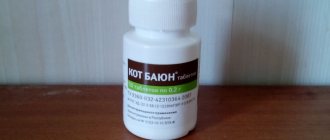Worms in a dog and other canine parasites are a real problem for the owner and a lot of unpleasant ailments for the pet itself. How to deworm a dog at home and are parasites dangerous for people?
Dog parasites are a fairly common disease. Any dog can have worms, even one that spends most of its time snuggled up on a soft sofa and spends its time walking mostly on a leash. However, they most often irritate these animals, which often run free and may come into contact with rodents infected with parasites or feces of other carriers, as well as stray dogs.
Why worm your dog?
Dogs often come into contact with parasites while walking. They become infected orally by licking contaminated grass or drinking water. Another way is to ingest fleas and eat rodents that carry the parasites.
Internal parasites affect your dog's health by causing diarrhea, vomiting, abdominal pain, general health problems, and gas. At first, however, no symptoms are visible and it takes a significant number of parasites in the digestive tract to worry the owner.
© shutterstock
Internal parasites that can be found in dogs:
- roundworms,
- nematodes,
- hair worms,
- hookworms,
- coccidia, lamblia.
Animals living with people need regular deworming (deworming the dog) for our safety. These parasites can often appear in humans, and lack of proper hygiene and hand washing every time after petting a dog can lead to infestation in children and adults living with the pet. Symptoms in humans are similar and include stomach pain, diarrhea, vomiting, fatigue or weight loss.
Contraindications for worming
Anti-worm medications are toxic, and their uncontrolled use can cause deterioration in the animal’s health. Deworming has a number of contraindications that must be taken into account. Deworming is contraindicated:
- sick, weak and exhausted animals;
- dogs after surgery;
- puppies up to 2 weeks;
- if the animal has external parasites: fleas, lice, ticks.
Read The essence of arthrodesis on the joints of a dog: indications, complications and reviews
Antihelmintics should be given with caution:
- pregnant and lactating dogs;
- animals with chronic diseases;
- animals prone to allergies.
Clinical symptoms of helminthiasis
To prevent your dog from suffering from pain, you need to immediately determine the cause, the following symptoms will help you:
- salivation,
- swallowing saliva,
- abdominal pain,
- the outlines of the abdominal cavity are enlarged,
- flatulence,
- apathy,
- diarrhea.
However, the absence of symptoms does not mean the absence of internal parasites in the dog's body.
However, it is necessary to worm your dog regularly. It is also recommended to conduct a stool test so that if the result is positive, you will know what kind of parasite you are dealing with and choose the best treatment option for this situation.
General information about worms in dogs
Parasitic worms have gone through millions of years of evolution and are ideally adapted to exist at the expense of host organisms. They try to behave as inconspicuously as possible. Their presence becomes obvious if the worms in the body have multiplied greatly and intoxication occurs with the products of their vital activity. The rest of the time, the parasites quietly poison the dog. Helminths in a dog can penetrate not only the digestive system, but also the lungs, liver, brain, and other organs.
The waste products of worms poison the entire body, causing allergic reactions. Parasites consume nutrients that enter the animal's body, which weakens the dog and leads to exhaustion. A dog infected with worms is susceptible to diseases and infections. In puppies there is a delay in growth and development; worms cause intestinal obstruction.
There are three main groups of parasitic worms: flatworms, roundworms and flukes. They cause diseases such as cestodosis, nematodosis and trematodosis. In Russia, dipylidioses (a group of cestodes), toxocariases and toxascariases (a group of nematodes) are often diagnosed. More than 80 species of worms can live in an animal’s body, of which more than 30 species are dangerous to humans (ascariasis).
How often should a dog be wormed?
Worming dogs is, along with vaccinations, a very important aspect of caring for the health of our pets. The administered pharmacological agent destroys those stages of the parasite that are present in the intestines when administered. Preventive deworming does not protect against parasite invasion, but significantly reduces the consequences of their possible existence.
There are many drugs for deworming, they can be used with different frequencies, in different forms (tablets, pastes, spot-on). It's best to ask your veterinarian which drug and how often to worm your dog.
Pills
How to give an anti-worm tablet? You can do this in different ways :
- The tablet is masked with food that your pet particularly likes. It is necessary to ensure that the dog has eaten all the medicine;
- mix the crushed tablet into the food (there should be a little of it);
- when it is undesirable to crush a tablet or capsule, they are used whole. The pet is seated, the head is slightly tilted back, the medicine is placed on the base of the tongue, and the jaws are closed. They keep it this way for a while until the dog swallows the pill.
The dog can spit out suspension medications, so they are used during feeding.
Please note: do not push the medicine down the throat; the animal may suffocate.
Among the drugs that are in demand are the following:
- "Prasicide." Approximately 130 rub. 1 tablet per 10 kg of weight. Give in the morning, mixing with food.
- "Dirofen Plus". From 30 rub. 1 tablet per 5 kg of weight. Give during feeding, mixing with food.
- "Milbemax". From 360 rub. 1 tablet per 5-10 kg of weight, up to 5 kg 0.5 tablets.
First deworming
Let's figure out when you should start worming your dog. This happens differently for puppies and adult dogs, so we will analyze each option in detail.
When to worm a puppy
The first deworming of a puppy usually occurs in the kennel and is carried out at approximately 2-3 weeks of age . The following should be carried out every 14 days , up to two weeks after weaning the dogs from the bitch. Older puppies are dewormed on average once a month until they are six months old.
When to worm an adult dog
How often we deworm an adult dog is up to us. The recommended minimum is twice a year , but a more common deworming regimen is every 3 months . However, in the case of families with children, the elderly and people with reduced immunity, it is recommended to administer antiparasitic drugs monthly .
When we observe parasites in feces, we should not act on our own. Take a stool sample, show a photo, or describe the appearance of the parasites to your veterinarian. He will select really good tablets that are suitable for a certain type of parasite. This therapeutic deworming should be repeated after approximately 14 days, and then the feces should be re-examined at the appointed time.
© shutterstock
Signs of infection
Depending on the age of the animal and its size, signs of parasite infestation may vary. In adult and strong dogs, infection with worms, as a rule, does not manifest itself outwardly. But you need to sound the alarm if you suddenly notice that your pet has:
- The fur has become dull.
- Diarrhea alternating with constipation is often observed.
- Loss of appetite, or vice versa, excessive gluttony, accompanied by loss of body weight.
- Vomit.
- Hiccups, cough.
These are the very first signs of worm infection. Sometimes (well, these are already completely advanced cases) the worms simply begin to crawl out, plunging the owners into shock.
In puppies, infection with parasites leads to developmental delays. Typically they have:
- Bloated tummy.
- Weakness.
- Decreased appetite.
- Vomiting (often with live parasites).
And to prevent this from happening, regular preventive deworming of dogs is necessary.
How to deworm dogs at home
It is up to us to decide what deworming of four-legged animals will be like. Tablets, pastes, suspensions or spot medications can be administered (they act against external or some internal parasites in dogs). The choice of drug does not affect how often you have to do this. The recommendations do not change.
You can purchase good tablets from your veterinarian. He will recommend a suitable drug, calculate the dose and how often to give it to the dog. Then we don't have to do anything ourselves. However, if you want to get yourself a puppy or a small dog, you can use at home, for example, toothpastes that are easy to apply even directly into the mouth. One syringe is sufficient for several dewormings in small animals, and the single dose depends on the weight of the dog.
Suspensions are another form of deworming medications. They are usually soft and suitable for even the smallest puppies. However, their spectrum of action is less than that of products intended for adult animals.
Here are the names of some anthelmintic drugs:
- Azipirin.
- Dehinel Plus.
- Prazitel.
- Drontal plus.
- Helmimax.
© shutterstock
Anthelmintics
In the pharmacy for animals you can find a large variety of medications for the prevention and treatment of helminths. They come in various forms. Each drug contains detailed instructions, which indicate general information, pharmacological properties, instructions for use, a dosage table based on weight and possible side effects.
Pills
The simplest and most reliable option for anthelmintics is tablets. When administered correctly, the medicinal capsule cannot be spat out completely or partially, like liquid syrup, for example.
- Drontal plus. Actively affects lamblia. Capsules do not cause side effects, but are not recommended for use in cases of individual intolerance to the composition;
- Holiday plus. Effective against round, tape and flat worms;
- Enwire. Used against various types of worms;
- Profender. Does not contain pyrantel as active substances, suitable for animals allergic to these components;
- Milbemax. Available in 2 forms - for large and small breeds. Effective against nematodes, trematodes and cystodes;
- Pratel. Affects most varieties of helminths, except the flat type.
Suspensions
An ideal option for small breed dogs and puppies that find it difficult to swallow tablets are suspensions:
- Drontal Junior. Has a detrimental effect on various types of worms. Suitable for adult miniature breed dogs and puppies at least 3 weeks old;
- Helminthal syrup. It will help remove tapeworms and roundworms. Used for small breeds and puppies at least 2 weeks old;
- Prazicide. Available in 2 types - for large, medium breeds and for small decorative breeds. Eliminates nematodes and cestodes;
- Procox. An effective remedy against nematodes and coccidia. It is forbidden to use for pets with renal failure or impaired liver function. There is individual intolerance to some breeds. Before use, you should consult a specialist;
- Febtal Combo. Suitable for destroying round and tapeworms at different stages of infection.
Drops
If the dog refuses to take medications and suspensions, then drops on the withers are an excellent way out. Some drops on the withers destroy not only helminths, but also fleas and ticks.
- Advocate. The drops are effective against nematodes, lice eaters, scabies mites and fleas. The substance contains alcohol and has a pungent odor that animals do not like;
- Inspector. It has a detrimental effect on roundworms, ixodid ticks and lice. The drug is available in 4 forms, depending on the weight of the animal.
Other means
If common means are not suitable, then you can use an alternative option:
- Polyverkan. These are sugar cubes that are attractive to dogs by taste and smell. Suitable for the smallest representatives weighing from 0.5 kg. The product does not affect all types of worms;
- Dirofen. This is an anthelmintic paste that has a complex effect on individuals of various types.
Most anthelmintics act on various types of worms and are considered broad-spectrum drugs. Before use, you must read the instructions for use.
Signs
Many owners do not know how to determine the presence of parasites in an animal, making it difficult to treat worms in dogs. There are a number of signs that indicate the presence of worms in a pet:
- Puppies are inactive and lethargic. Their growth slows down. The cub's fur becomes matte, and the white of the eye acquires a bluish rim. The abdomen is swollen, the stomach is rumbling.
- The pet loses weight (even with a normal appetite); vomiting, diarrhea, and hiccups may occur after eating. If there are already a lot of worms, then the pet refuses to eat, and the immune system weakens.
- The mucous membranes become pale, and skin diseases and dermatitis may appear.
- Worms are noticeable in the animal's feces, blood and mucus appear. Parasites often cause constipation.
- The liver enlarges.
- Wandering larvae can injure lung tissue, which can lead to pneumonia.
- Ursosan - instructions for use. Indications for taking Ursosan tablets and capsules, analogues with prices and reviews
- Heartburn every day - what to do. Causes and treatment of heartburn
- Fried zucchini for the winter









